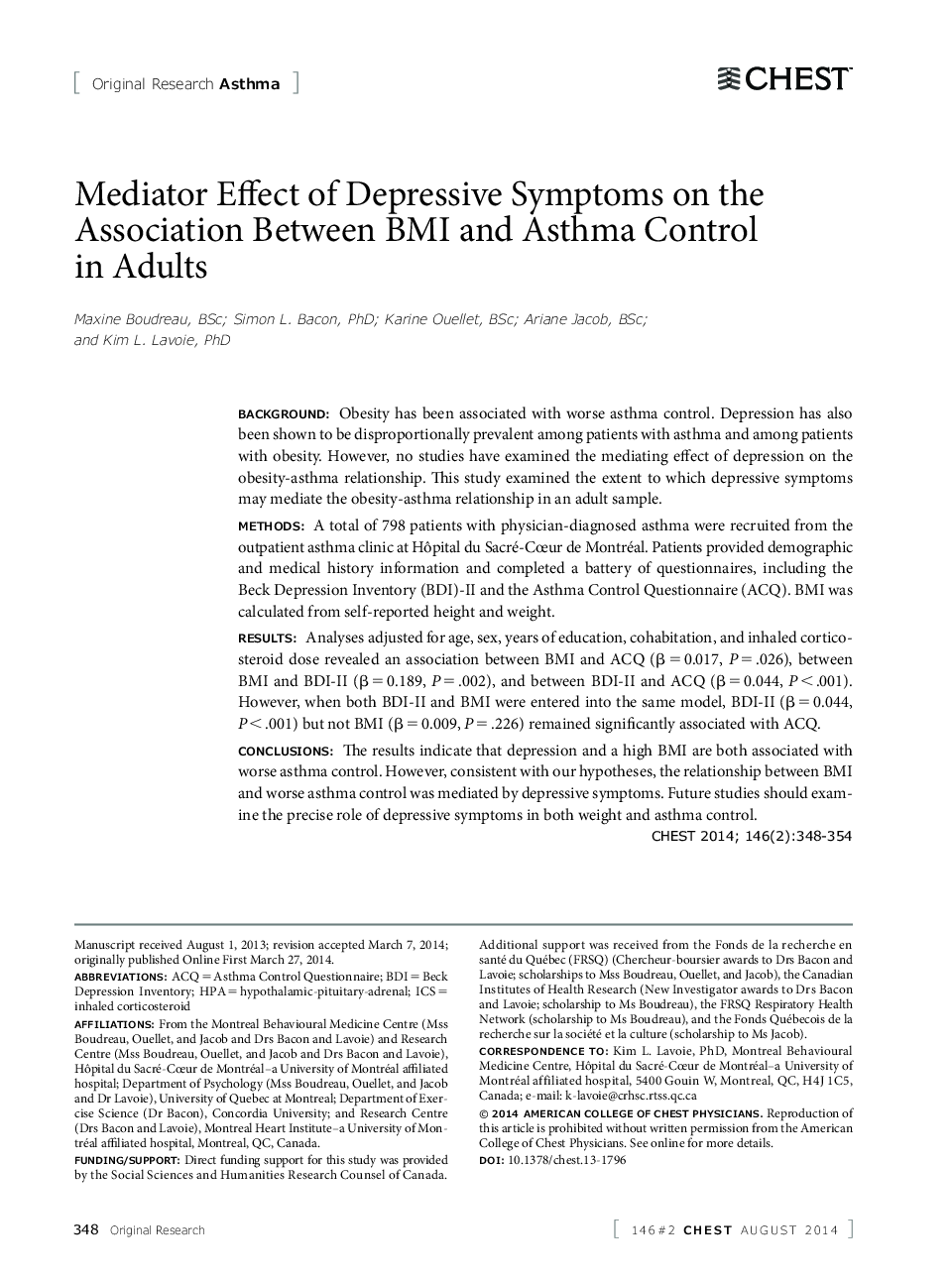| Article ID | Journal | Published Year | Pages | File Type |
|---|---|---|---|---|
| 5954839 | Chest | 2014 | 7 Pages |
BACKGROUNDObesity has been associated with worse asthma control. Depression has also been shown to be disproportionally prevalent among patients with asthma and among patients with obesity. However, no studies have examined the mediating effect of depression on the obesity-asthma relationship. This study examined the extent to which depressive symptoms may mediate the obesity-asthma relationship in an adult sample.METHODSA total of 798 patients with physician-diagnosed asthma were recruited from the outpatient asthma clinic at Hôpital du Sacré-CÅur de Montréal. Patients provided demographic and medical history information and completed a battery of questionnaires, including the Beck Depression Inventory (BDI)-II and the Asthma Control Questionnaire (ACQ). BMI was calculated from self-reported height and weight.RESULTSAnalyses adjusted for age, sex, years of education, cohabitation, and inhaled corticosteroid dose revealed an association between BMI and ACQ (β = 0.017, P = .026), between BMI and BDI-II (β = 0.189, P = .002), and between BDI-II and ACQ (β = 0.044, P < .001). However, when both BDI-II and BMI were entered into the same model, BDI-II (β = 0.044, P < .001) but not BMI (β = 0.009, P = .226) remained significantly associated with ACQ.CONCLUSIONSThe results indicate that depression and a high BMI are both associated with worse asthma control. However, consistent with our hypotheses, the relationship between BMI and worse asthma control was mediated by depressive symptoms. Future studies should examine the precise role of depressive symptoms in both weight and asthma control.
